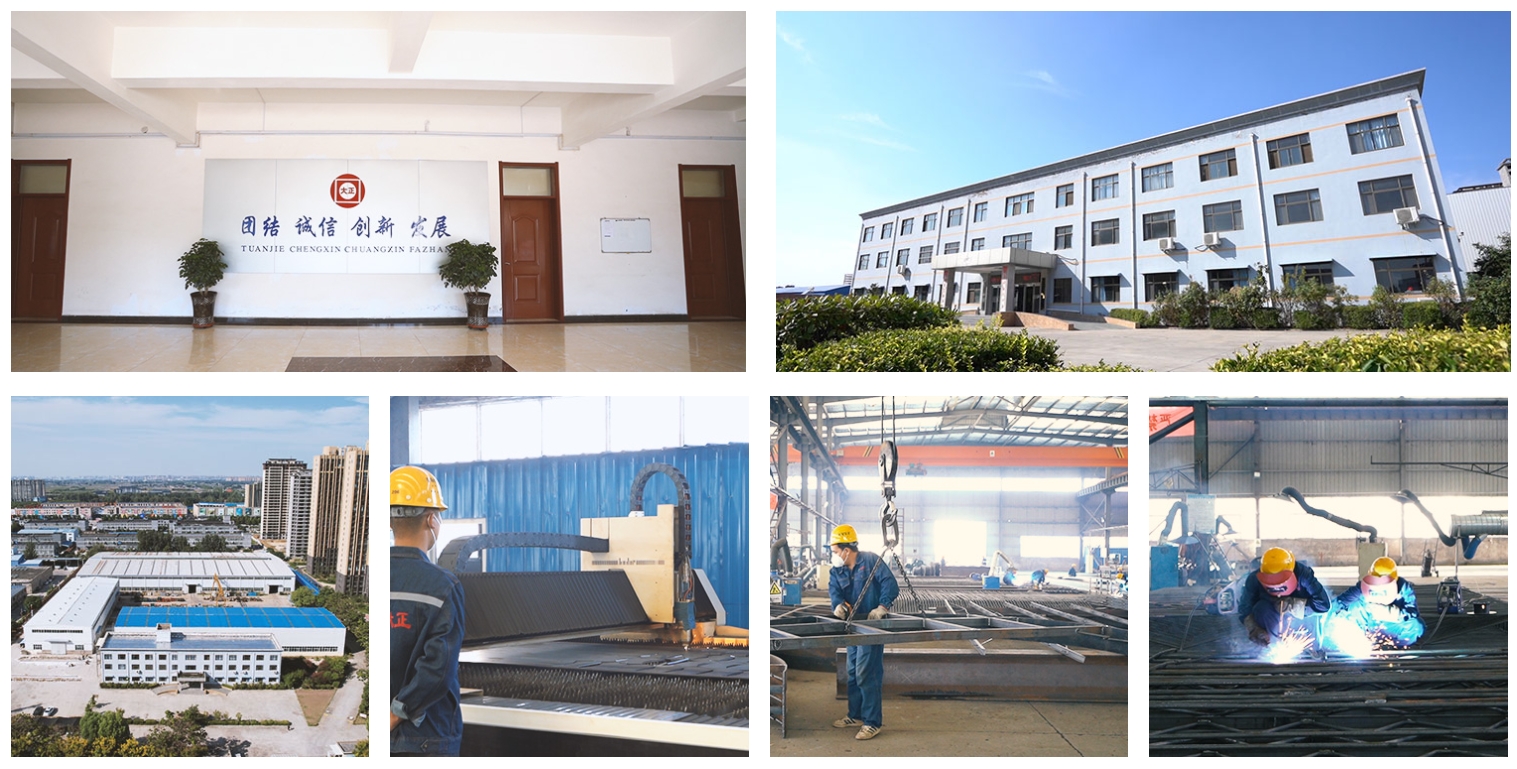Lime, as an important raw material, has a wide range of applications in industries such as construction, agriculture and chemicals.However, the storage of lime faces many challenges, and its characteristics dictate high requirements for storage conditions.For example, lime is prone to hygroscopic caking and chemical reactions when exposed to moisture, which affects its usability and value.Traditional storage methods, such as open stacking or ordinary warehouse storage, often fail to meet the special needs of lime storage and are prone to pollution, waste and quality degradation.
Steel plate warehouse overview
1. Definition and structure of steel plate silo
Steel plate silo is a kind of cylindrical storage equipment made of steel plate, which usually adopts modular design with strong pressure resistance and superior sealing.Its internal ventilation, temperature control and automated management system can be installed to meet the storage needs of various bulk materials.
2. Working principle of steel plate warehouse
Steel plate silo is bolted or welded to ensure that the stored materials are not affected by external moisture, temperature or pollutants.Especially for materials like lime which require high storage environment, steel plate silo can provide dry, sealed and efficient storage space.
3. Comparison with traditional storage
Compared with traditional silo, steel plate silo has obvious advantages in sealing, durability and management efficiency.Poor sealing of traditional storage methods can easily lead to moisture absorption of materials, and there will be dust, polluting the environment and harming human health, while the steel plate silo can effectively avoid these problems and improve the storage efficiency and stability of lime quality.
Lime storage requirements
1. Physical properties of lime
Lime usually exists in the form of dry powder or granule, it is very easy to absorb moisture and agglomeration, and in contact with moisture will occur when the hydration reaction.This characteristic determines that lime storage must have good moisture-proof conditions and stable environmental control.
2.The main challenges of lime storage
Moisture and humidity prevention: humid environment will lead to lime agglomeration, or even deterioration, affecting its performance.
Anti-pollution: Lime is prone to absorb impurities in the air, leading to a decrease in its purity.
Safety: Stone dust is a potential risk to health and the environment, so measures need to be taken to avoid dust flying.
Advantages of lime storage in steel plate silo
1. Moisture resistance
Steel plate silo has excellent sealing performance, which can effectively prevent outside moisture from entering the storage space.At the same time, its waterproof design and anti-corrosion treatment further enhance the dryness of the storage environment, largely reducing the risk of lime moisture absorption.
2. Compression resistance and durability
The steel plate silo is constructed with high-strength steel, which can withstand the storage of large-weight materials.Its sturdy structure prevents lime from clumping during storage and ensures a long service life with low maintenance costs.
3. Automation and efficient management
Modern steel plate silo can be equipped with automated management system to monitor the height, weight and temperature of the material level in the silo to ensure that the lime is always in the ideal storage condition.Automated loading and unloading equipment can also greatly improve loading and unloading efficiency and reduce labor costs.
4. Sealing and anti-pollution
The sealing design of the steel plate silo can effectively isolate the entry of external pollutants and maintain the purity of the lime.At the same time, the sealed environment reduces the leakage of dust, which is conducive to environmental protection and safety.
5.Flexibility and Expandability
The modular design of the steel plate silo makes it possible to flexibly expand the storage capacity according to the demand and adapt to the storage needs of enterprises of different sizes.This flexibility enables enterprises to utilize resources more efficiently and respond to changes in storage capacity.
6. Dust protection and security
The internal design of the steel plate silo reduces the risk of dust flying during the storage process, helping to protect worker health and environmental safety.In addition, their explosion-proof and fire-resistant design enhances the safety of the overall storage system.
Steel plate silos are a good choice for lime storage due to their excellent moisture resistance, sealing, automation and adaptability.It can not only effectively solve the problems of moisture resistance, pollution prevention and safety in the traditional storage method, but also improve the storage efficiency and reduce the cost of enterprises through automation and modularization design.
Driven by modern industrialization, steel plate silo will continue to play an important role in the storage of lime and other bulk materials.For enterprises with lime storage needs, the choice of steel plate silo is not only a wise move to improve operational efficiency, but also the key to ensure the quality of lime and storage safety.
Anyang Dazheng
Steel Silo Co., Ltd., founded in 2002 with a registered capital of 35.89 million RMB, is a large-scale specialized manufacturer and contractor of steel silos, steel structures, and grain machinery. The company has obtained international certifications for quality, environmental management, and occupational health and safety. It holds 3 invention patents and 54 utility model patents.
The annual production capacity of Dazheng Company is over 2 million cubic meters of steel silos and 36,000 tons of steel structures. The diameter of the steel silos can range from 2.8 meters to 30 meters. Single silo storage capacity reaches 20,000 tons. The height of multi-layer steel structure frameworks can reach 50 meters.
Dazheng has undertaken international projects in countries such as Malaysia, Vietnam, Kenya, South Africa, Eritrea, Russia, Kazakhstan, and Kyrgyzstan, establishing long-term stable cooperative relationships.






